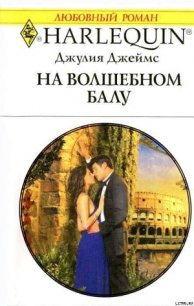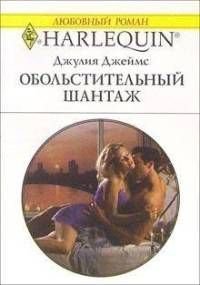Julia Ward Howe - Richards Laura E. (бесплатная регистрация книга TXT) 📗
She thus recalls some of the scenes in the State House where she was so long a familiar figure:—
"I have again and again been one of a deputation charged with laying before a legislature the injustice of the law which forbids the husband a business contract with his wife, and of that which denies to a married woman the right to be appointed guardian of her children. We reasoned also against what in legal language is termed 'the widow's quarantine,' the ordinance which forbids a widow to remain in her husband's house more than forty days without paying rent, the widower in such case possessing an unlimited right to abide under the roof of his deceased wife. Finally, we dared ask that night-walkers of the male sex should be made liable to the same penalties as women for the same offence. Our bill passed the legislature, and became part of the laws of Massachusetts."
Elsewhere she writes: "In Massachusetts the suffragists worked for fifty-five years before they succeeded in getting a law making mothers equal guardians of their minor children with the fathers. In Colorado, when the women were enfranchised, the next legislature passed such a bill." Of the movement by which women won a right to have a voice in the education of their children, she says: "The proposal to render women eligible for service on the School Board was met at first with derision and with serious disapproval. The late Abby W. May had much to do with the early consideration of this measure, and the work which finally resulted in its adoption had its first beginning in the parlors of the New England Woman's Club, where special meetings were held in its behalf. The extension of the school suffrage to women followed, after much work on the part of men and of women."
"These meetings," she said once, speaking before the Massachusetts Woman Suffrage Association, "show, among other things, the character of those who believe in suffrage with their whole heart. We who are gathered here are not a frantic, shrieking mob. We are not contemners of marriage, nor neglecters of home and offspring. We are individually allowed to be men and women of sound intellect, of reputable life, having the same stake and interest in the well-being of the community that others have. Most of us are persons of moderate competence, earned or inherited. We have had, or hope to have, our holy fireside, our joyful cradle, our decent bank account. Why should any consider us as the enemies of society, we who have everything to gain by its good government?"
It seems fitting to add a few more of her words in behalf of the cause which she served so long,—words spoken at Club meetings, at Conventions before Legislatures.
"But besides the philosophy of woman suffrage, we want its religion. Human questions are not glorified until they are brought into touch with the Divine...."
"The weapon of Christian warfare is the ballot, which represents the peaceable assertion of conviction and will. Adopt it, O you women, with clean hands and a pure heart!"
"The religion which makes me a moral agent equally with my father and brother, gives me my right and title to the citizenship which I am here to assert. I ought to share equally with them its privileges and its duties. No man can have more at stake in the community than I have. Imposition of taxes, laws concerning public health, order, and morality, affect me precisely as they affect the male members of my family, and I am bound equally with them to look to the maintenance of a worthy and proper standard and status in all of these departments."
"God forbid that in this country chivalry and legislation should be set one against the other. I ask you, gentlemen, to put your chivalry into your legislation. Let the true Christian knighthood find its stronghold in your ranks. Arm yourselves with the best reasons, with the highest resolve, and deliver us poor women from the injustice which oppresses and defrauds us."
"Revere the religion of home. Keep its altar flame bright in your heart.... The vestals of ancient Rome were at once guardians of the hearth and custodians of the archives of the Roman State. So, in every time, the home conserves the sacred flame of life, and the destiny of the nation rests with those who keep it."
"Go abroad with the majesty and dignity of your home about you.... Let the modest graces of the fireside adorn you in the great gathering. This is a new sort of home missionary, one who shall carry the blessed spirit of home wherever she goes, a spirit of rest, of healing, of reconciliation and good-will."
"One aspect of this [the military argument] would make the protection which men are supposed to give to women in time of war the equivalent for the political rights denied them. But, gentlemen, let me ask what protection can you give us which shall compare with the protection we give you when you are born, little helpless creatures, into the world, without feet to stand upon, or hands to help yourselves? Without this tender, this unceasing protection, no man of you would live to grow up. It may easily happen that no man of a whole generation shall ever be called upon to defend the women of his country in the field. But it cannot happen that the women of any generation shall fail to give their unwearied and energetic protection to the infant men born of it. Some of us know how full of labor and detail this protection is; what anxious days, what sleepless nights it involves. The mothers are busy at home, not only building up the bodies of the little men, but building up their minds too, teaching them to be gentle, pure and honest, cultivating the elements of the human will, that great moralizing power on which the State and the Church depend. A man is very happy if he can ever repay to his mother the protection she gave him in his infancy. So, the plea of protection has two sides.
"If manhood suffrage is unsatisfactory, it does not at all show that woman suffrage would be. On the contrary, we might make it much better by bringing to it the feminine mind, which, in a way, complements the masculine, and so, I think, completes the mind of humanity. We are half of humanity, and I do frankly believe that we have half the intelligence and good sense of humanity, and that it is quite time that we should express not only our sentiments but our determined will, to set our faces as a flint toward justice and right, and to follow these through the difficult path, through the thorny wilderness. Not to the bitter end, but a very sweet end, and I hope it may be before my end comes."
Her last service to the cause of woman suffrage was to send a circular letter to all the editors and to all the ministers of four leading denominations in the four oldest suffrage States, Wyoming, Colorado, Utah, and Idaho, asking whether equal suffrage worked well or ill. She received 624 answers, 62 not favorable, 46 in doubt, and 516 in favor. A letter from her to the London "Times," stating these results, appeared on the same day that the news of her death was cabled to Europe.
Thinking of the long years of effort which followed her adoption of the cause of woman suffrage, a word of the Doctor's, spoken in 1875, comes vividly to mind.
"Your cause," said he, "lacks one element of success, and that is opposition. It is so distinctly just that it will slide into popularity." He little thought that the cause was to wait forty years for that slide!




